
The Midnight North (left to right): Simon Tong, Hannah Peel and Erland Cooper
We chat to one third of The Magnetic North about how his childhood home of Skelmersdale inspired their new album
Having been a member of The Verve, part of the supergroup behind The Good, The Bad & The Queen and a touring musician with both Blur and Gorillaz, multi-instrumentalist and songwriter Simon Tong has played his part in some of the most enduring music of the last two decades. His own bands, including the prog-folk of Erland And The Carnival and the immersive psychogeographical sounds of The Magnetic North (the topic of our conversation today), further add to a body of work of immense variety and richness.
Along with Erland Cooper and Hannah Peel, Tong makes up the core of The Magnetic North. Their latest album Prospect Of Skelmersdale was inspired by Tong’s upbringing in the Lancashire town and its role as the hub of the Transcendental Meditation (TM) movement in the UK. The follow-up to 2012’s Orkney: Symphony Of The Magnetic North, it is another astonishing creation, blending geography, history and music into something quite unique.
We caught up with Tong to discuss the album’s origins, what it was like to write about his childhood home and the influence Messrs Albarn and Ashcroft have had on his career…
When did you first have the idea for the album?
“It was a few years ago. We’d already done an album about the Orkney Islands and we were talking about what to do the next one about. I am from Skelmersdale and I was talking to the other two about it, they thought it was a great idea for an album but it took quite a while to gestate and for us to work out how to write about something so different.
“Writing about the Orkney Islands was reasonably easy because there’s an awful lot of poetry, art and writing that has already been done about it. There’s thousands of years of history and a great tradition of storytelling and folklore. Skelmersdale has very little, if anything, to draw from other than the town itself. It was a bit more of a challenge from the writing perspective.”
Did you have to educate the other two about the history of the town?
“I sent them up there. They went on a little foraging expedition and immersed themselves in the town. They went to meet people at the local library, which is the hub of the community. They met a woman who runs a writers group and she gave them loads of writing, poetry and essays by local amateur writers. They gathered it all together in a big folder and set to work.”
It sounds like a very thorough process?
“We thought about doing an album of songs that are unconnected but we just couldn’t do it. We’d started off using musical geography with the first album and it seemed we couldn’t really get away from that. The whole purpose of this group is to do music that’s very much linked to a place, its memories and landscapes. It was impossible not to follow it up. It was either that or never do anything again.

The Midnight North: “We all write separately and then bring ideas and sketches together and then work on them some more”
“It was difficult writing an album about Skelmersdale, we didn’t want to do something that was depressing or highlighted the negatives of the town. We had to really dig deep and find the positive things and give the album hope rather than put the town down too much.”
There’s definitely a cosmic element to the album which prevents it from sounding depressing
“I think some of that strangeness comes from the fact that the Transcendental Meditation movement moved to Skelmersdale in the 1980s. That’s where the otherworldly weirdness and optimism comes from because they’re incredibly optimistic people. It added another layer to the album which otherwise could have just been about a new town and how it failed.”
Were your family involved in the TM movement?
“Yes and I had experience of their way of thinking. They’re very optimistic people and they moved to Skelmersdale with the hope that by meditating twice a day they could lift the town’s economic fortunes and its overall well-being .I don’t know whether they did or not but it’s a nice idea.”
Is it something you’ve continued in your adult life?
“No I never really did it, it was always my dad. He was a big follower of the Maharishi.”
How did the three of you then come together to turn all the research and memories into an album?
“We worked separately. I was quite happy for them to write about the town and their outside experience of it and obviously I would write about my personal experience of growing up there and the people that I knew there. We’ve all got recording equipment at home so a lot of the time we do rough ideas ourselves and then send them to each other and then we’ll get together and spend a few days thrashing things out, changing things. We all write separately and then bring ideas and sketches together and then work on them some more.”
Do you all work on both melody and lyrics?
“Mostly it’s myself and Erland who would do a lot of the lyrics and the melodies. Hannah would come in and add the string and woodwind arrangement and adapt a few things, as she sings the songs. The town is very much just a concept on which to hang song ideas on as well. We didn’t feel it had to be directly drawn from the town, it could be a memory which you could then hang on this backdrop of Skelmersdale.”
Yet some of the lyrics are very specific, such as on A Death In The Woods
“That one is very specific and I after it was written we realised that this was going to work as a concept. It was a bit of a stream of consciousness and I think once we’d done that we saw that we could write a song about the town and could write a whole album about Skelmersdale, it wasn’t impossible. There was enough inspiration there to write songs about.”

The Midnight North: “On both albums we came up with the song titles first before we had the songs.”
Were you ever surprised by the others opinions about Skelmersdale?
“I suppose so, perhaps they were the first ones to come back and say it’s actually quite a nice place. I’d left there when I was 15 and in my memory it was a very grey and grim concrete place, in my head it was always quite a cold place. They went there and came back and said it was actually quite nice. They went in the summer and all the trees were out and it was green and pleasant. They brought their personal view of it which was a much sunnier view of the place.
“Hannah has always been a fan of Soviet style architecture and Skelmersdale does look like it’s been taken from the old Soviet Union and plonked in Northern England. It doesn’t like a typical English town. She really loved that side of it, buildings and bridges that are very brutalist and striking looking. When it was built people probably thought it was a bit ridiculous but over the space of 50 years things start to look really classic.”
What were some of the other influences behind the album?
“It was very much drawing on memory. Having grown up in the 70s I had memories of film and tv soundtracks which have lots of woodwind. We wanted to use the oboe to reinforce that memory of 70s film stock, of the colours and the feel.”
It’s a different sound to the previous album.
“It’s more kitchen sink. Maybe the first one was cinematic and this one was more television.”
As you mentioned previously, it perhaps reflects the differences between Orkney and Skelmersdale?
“Very much, when you go to Orkney it’s just wide open space, rolling hills and sea, embellishing wherever you look. Skelmersdale is very different, it’s much more intimate and there are a lot of woods. It feels like it’s in the middle of a forest because a lot of trees were planted when the town was built 50 years ago and now they’ve matured. It feels like nature’s crawling its way back into the town.”
How does writing with The Magnetic North compare to the other projects you’ve been involved with?
“I suppose it’s just the concept, choosing a place to write about and writing about it. It gives you a confine in what you can write about but at the same time it’s quite liberating and frees you up in other ways. I think I just find it easier to write about something. On both albums we came up with the song titles first before we had the songs. We had 11 or 12 titles that were quite evocative and we would then try to write to those titles. It’s a really nice and different way of doing it and it just seems to work for us.
“You might start writing a song and think ‘ah that fits this title’ and then it feels like the song has got a life of its own. We did it by accident on the first album and we thought it worked so well we’d do it again. It feels completely natural to write like that now.”

The Magnetic North: “A song is an ever-changing, ever-evolving and morphing thing.”
Do you then enjoy writing in a more traditional way when you have the chance?
“I think for The Magnetic North we’ll carry on doing it this way, but I do write with other people in the usual way. I feel like we’ve started on a path which we can’t really veer off from. We’re going to have to do another album about where Hannah grew up and do the same thing again.”
Who would you say has had the biggest influence on your songwriting career to date?
“I’ve been lucky enough to work with Richard Ashcroft and Damon Albarn and I suppose it’s either of those. You learn that even people who are considered great songwriters are stumbling around and are always learning new things themselves, that’s quite reassuring. Also, seeing how really good songwriters write loads of stuff and throw so much away is also quite heartening. They might write 100 songs and only one will make the album.
“Damon just writes and writes, he has so many different projects on the go at the same time. He’ll continually change things over. When you think a song is finished it can still be changed and swapped around, it’s quite nice to work like that. A song is an ever-changing, ever-evolving and morphing thing. Even after it’s on an album it can still change again in live situations.”
Are those lessons reflected in the way that you write?
“I try to, I’m nowhere near as prolific as Damon but I try. I do a bit of co-writing with other people as well. I’m writing with a Liverpudlian girl called Zuzu at the moment and it’s amazing to see people who just have their own style. You think that music’s been done so many times and everything’s been done and then someone can pop up who is 18 years old with a guitar and play three chords and it still sounds different. They can take E, A and B and make something completely unique.”
Lastly, what advice would you have for young songwriters?
“Write music that you would want to hear yourself. No-one else might like it but I think you have to start off like that rather than try to write music that the general public will like. You just have to please yourself initially.”
Duncan Haskell
The Magnetic North will be performing at The E Rooms, Skelmersdale on 6 May. Check out the band’s website for more info: symphonyofthemagneticnorth.com



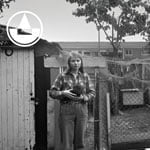
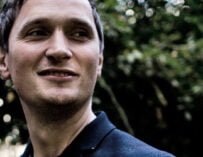
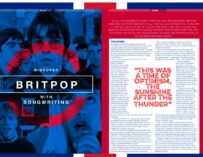



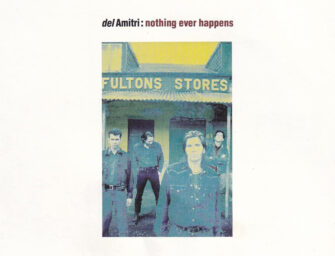

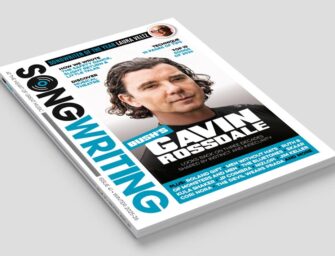
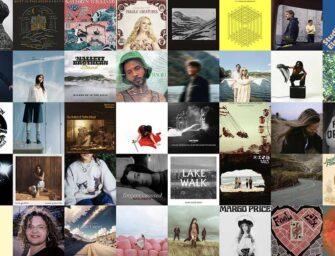
























Related Articles